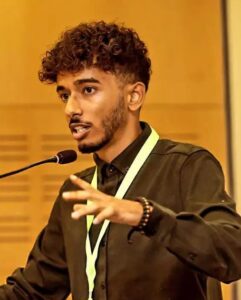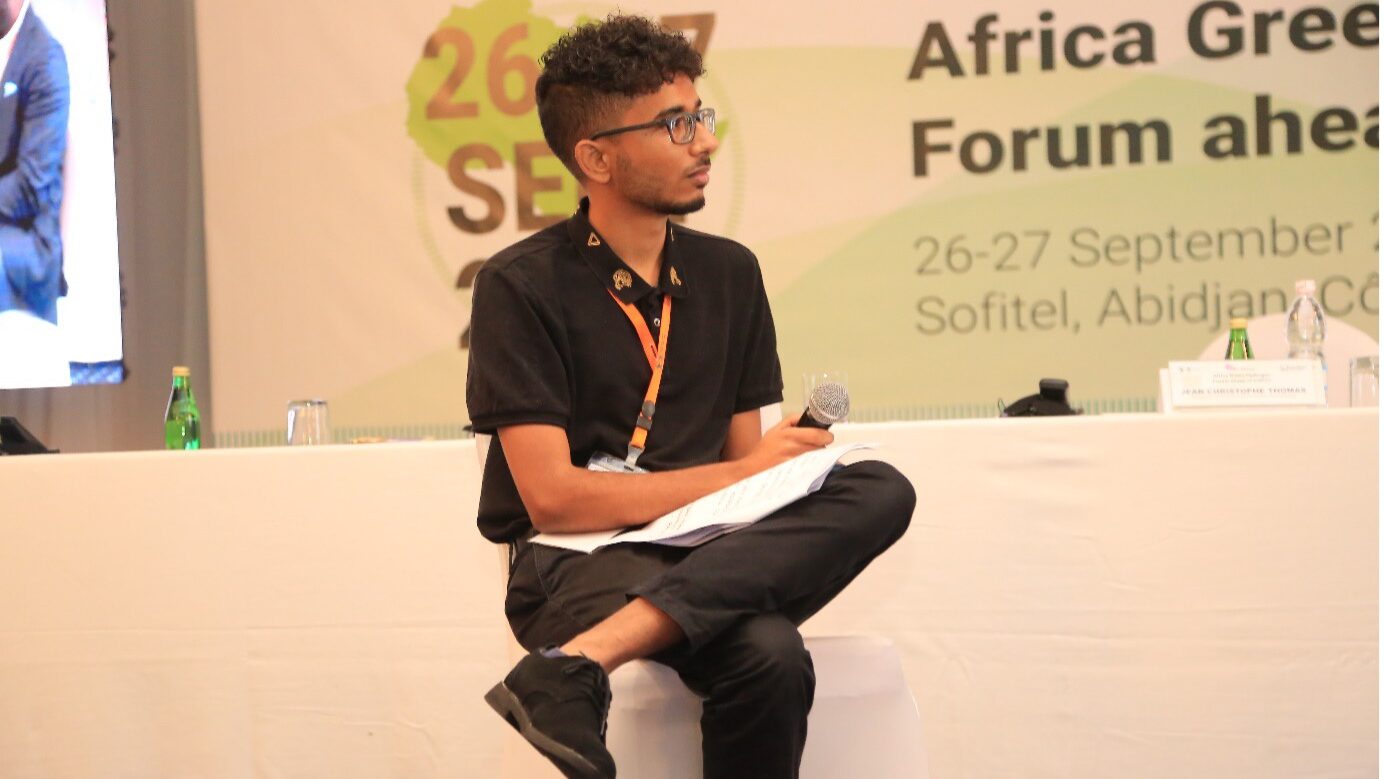Jabri Ibrahim: Meet the Young Climate and Clean Cooking Champion
 Jabri Ibrahim works for the two current United Nations (UN) Climate Change High-Level Champions in their regional team in Africa, focusing on clean cooking, renewable energy, green hydrogen, and critical minerals mining. Previously, Jabri worked at the Stakeholder Engagement Team of the UN Framework Convention on Climate Change (UNFCCC) Secretariat and has prior multilateral experience working at the UN Environment Program, Red Cross Kenya, and Crevit Mulier, as well as volunteering with Greenpeace Africa and the Kenya Environmental Action Network.
Jabri Ibrahim works for the two current United Nations (UN) Climate Change High-Level Champions in their regional team in Africa, focusing on clean cooking, renewable energy, green hydrogen, and critical minerals mining. Previously, Jabri worked at the Stakeholder Engagement Team of the UN Framework Convention on Climate Change (UNFCCC) Secretariat and has prior multilateral experience working at the UN Environment Program, Red Cross Kenya, and Crevit Mulier, as well as volunteering with Greenpeace Africa and the Kenya Environmental Action Network.
The Clean Cooking Alliance (CCA) spoke with Jabri about his remarkable experience as a young climate leader and advocate for clean cooking.
This story is part of a series featuring youth leaders from across the clean cooking sector.
Clean Cooking Alliance (CCA): What motivates you to engage in clean cooking?
Jabri Ibrahim (Jabri): This year, the International Energy Agency and African Development Bank commissioned a landmark study titled ‘A Vision for Clean Cooking Access for All,’ which highlighted the notable uptick in the deployment of clean cooking solutions in all sub regions of the Global South (Asia and Latin America) except for Africa. This is because the net number of African people who lack access to clean cooking solutions has never stopped growing, mostly due to Africa’s sudden population boom. Under today’s business-as-usual policy style, African countries will not reach universal clean cooking access by mid-century.
This is concerning because cooking with dirty fuels can not only cause premature death, but it also prevents women and girls from achieving their full potential because of the adverse health impacts and the amount of time and inefficiencies that are a consequence of traditional cooking methods. Additionally, fossil-fuel based cooking stoves emit a concerning amount of greenhouse gas emissions.
CCA: What barriers do youth face in meaningfully engaging and acting on clean cooking?
Jabri: I think the biggest challenge in entering any institution is the lack of entry-level positions. Clean cooking organizations are not recruiting entry-level personnel, every institution wants to recruit a regional director or a global expert. We need more positions that are targeted to early career young professionals, like internships and fellowships. These entry-level positions need to be paid jobs so that young people can live dignified lives. The lack of entry-level positions prevents the brightest minds of incoming generations from entering the cooking and climate space.
Another challenge is the lack of formal training in the clean cooking sector. There are no tertiary institutions that offer real upskilling in this sector. The final challenge is digital exclusion. With the recent uptick in hybrid and fully virtual work, a huge chunk of the population is being left out.
CCA: What training opportunities are necessary for empowering youth to engage in the clean cooking sector meaningfully?
Jabri: Young people not only need to be trained in the technical science behind clean cooking solutions, but also in leadership skills needed to become an executive in this sector. If we want young people to have leadership positions, then we need to provide the executive training that it takes to achieve this reality.
CCA: Why is it important to involve youth in multi-stakeholder, intergenerational dialogues and decision-making processes?
Jabri: Involving young people in dialogues and decision-making processes is not only a diversity win, but also a strategic way of sourcing diverse thoughts and ideas. Young people represent the biggest segment of Africa’s population, and they stand to lose the most if we fail to achieve the Paris Agreement’s goals. The easiest way to understand young peoples’ perspectives is to ask them and to be open to the diversity of opinions they share. Young people do not have monolithic views. Another key role that young people play is holding incumbent leadership accountable by advocating for a more equitable future that has universal clean cooking access.

CCA: What are critical spaces where youth in clean cooking and adjacent sectors need more representation?
Jabri: Policy-making entities, governments, and formal processes are famously exclusionary to not only young people but any other actors in society. It is of paramount importance that we involve a broad array of perspectives, insights, and expertise before legislating any policy that can affect clean cooking deployment, especially in Africa where the predominant demographic is young Africans.
Young people are increasingly present in climate change forums like the UN Climate Change Conferences (COP), but their presence is not felt on the biggest stages or in the most influential decision-making rooms. Young people are often invited to make opening or closing speeches; they are not invited to the agenda setting and design phases of these climate events. Young people need to be present in national delegations to COP and have a voice in the climate negotiation rooms.
Young professionals in the sector need to be represented in both executive-level departments and as well as in any advisory committees of companies and actors in the clean cooking ecosystem.
CCA: How do you envision the role of youth in shaping the future of the clean cooking sector in the next decade?
Jabri: Young people will play an oversized role in climate action as they stand to lose most if we fail to meet our climate targets. That is why it is so paramount that they are embedded in the design of policy making as well as the implementation phases of response measures.
Providing a household in a community with clean cooking solutions that meets price parity with fossil-based fuels will not only lift them from poverty, but also lift them from adverse health impacts and insecurity and put them on a pathway to prosperity.
CCA: What advice would you offer to young individuals aiming to initiate change in the clean cooking sector?
Jabri: The best advice I would give to any young professional who wants to be a catalytic changemaker is to believe in the power of partnerships—no person is an island. Trusted partners allow you to shock test new concepts and also make strategic introductions to an even broader coalition of new partners who could be technical or financial collaborators.
The best way to make an impact is through community projects on the ground. I find that helping one person in the real world and then showcasing that action on global stages is the most effective way to contribute towards meaningful climate action. We can get caught up in the whirlwind of launching new ideas at COP and being distracted from the main goal.
